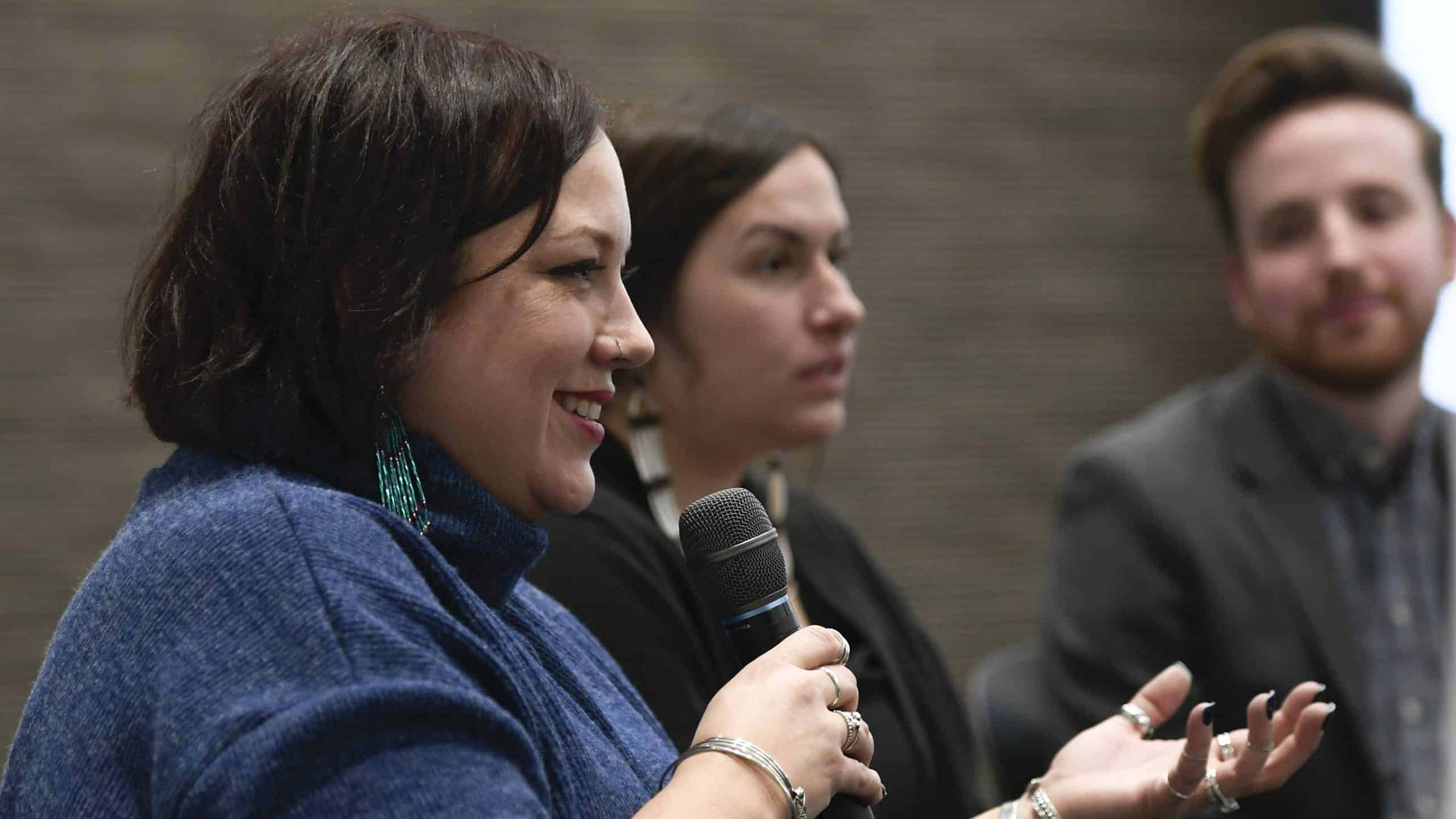
At Greater Twin Cities United Way, we believe that safe, stable and affordable housing is key to every person’s success, and that our community can come together to effectively end the most egregious form of housing stability – homelessness. That’s why we work with community to ensure that everyone has what they need to obtain and maintain housing that works best for them.
Unfortunately, that vision of safe, stable and affordable housing isn’t the reality for everyone in our community. Since 2015, homelessness in Minnesota has increased 10 percent, and on any given night, more than 7,000 people are experiencing homelessness. More than half of these individuals are children or young adults who may be couch hopping between family and friends, staying in shelters or sleeping on light rail. There also has been a significant increase in the unsheltered population, including people sleeping outside or in encampments.
The realities of homelessness for Native American communities specifically were thrown into the spotlight after the encampment in Minneapolis last year, also known as the Wall of Forgotten Natives. Because of intentionally racist historical and present policies and systems, Native Americans have been disproportionately impacted by homelessness for as long as we have data. In fact, Native Americans are overrepresented in the population of people experiencing homelessness by a factor of 12, and Native Americans are 26 times more likely to experience homelessness than white people.
United Way’s vision is a future where homelessness is prevented where possible and, where it’s not, it is rare, brief and nonrecurring. To do that, we support over 30 local nonprofits working on housing stability in the Greater Twin Cities, including the Minnesota Indian Women’s Resource Center (MIWRC) and Ain Dah Yung Center (ADYC).
Recently, leaders from these organizations joined us for a Community Insight Session on housing stability, specifically as it relates to Native American communities in our region.
Both MIWRC and ADYC focus on culturally-specific programming for Native American youth and families, particularly individuals experiencing homelessness.
Patina Park is the president and CEO of the Minnesota Indian Women’s Resource Center (MIWRC), a culturally-grounded nonprofit agency dedicated to providing holistic, multi-service programming grounded in traditional Native American teachings that help heal, preserve and strengthen Native American women and their families from the multi-generational trauma of colonization.
“Reconnecting people to that sense of who they are – you can do that even when you’re homeless,” said Patina. “It’s a crazy thing to say, but if someone feels strong with who they are, and knows what they can do – even traditionally, like prayer – they can reinforce themselves against things that would make them vulnerable, even if they’re struggling with riding the train or taking the bus.”
The Ain Dah Young Center is the only emergency shelter designed specifically to serve Native American youth experiencing homelessness in the Twin Cities. ADYC provides culturally-responsive programs, community support, transitional housing and recently, permanent supportive housing – ADYC opened its new Mino Oski Ain Dah Young 42-unit Native American youth housing facility this fall.
There are several barriers to connecting Native Americans experiencing homelessness with available resources and programs, one of which is the current Coordinated Entry system. “The coordinated entry system is great in theory; however, it was not designed in a culturally-specific lens by any means,” said Holly Henning, residential director for ADYC. Typically, during Coordinated Entry, folks are paired with a stranger, who is the accessor, and are asked questions about previous housing situations that cause them to relive those experiences and the associated trauma. “One of the main things that we see on the housing end of things is that Native folks aren’t really willing to access [Coordinated Entry] unless it’s sitting down with a Native assessor that they’re already familiar with.”
Those closest to our community’s challenges are also closest to the solutions, and it’s crucial that we as a community concrete solutions by and for the people we’re serving. “The other thing I’d like to add is [the importance of] really including people with lived experience in those meetings and asking those questions,” said Holly. “Because I think, oftentimes, it is people sitting at the table who have no idea what it’s like to spend a night on the streets or be in shelters.”
Programs like United Way’s Culturally Powered Communities (CPC) support communities led by and serving people of color and Native Americans, by facilitating cohort meetings, capacity building, and helping build a sense of community.
“The power of the CPC was it allowed us and community to have conversations that might be somewhat difficult amongst each other, and to have that in a safe space with each other,” remarked Patina. “Having more space like that is powerful because we create a shared, unified position – with nuances and differences – that can go out into the larger, mainstream community… the sense of community was strong.”
[…] January of 2020, it was reported that Native Americans were 26x more likely to experience homelessness than white Americans. We can’t afford to keep counting them out. Talk to your representatives […]